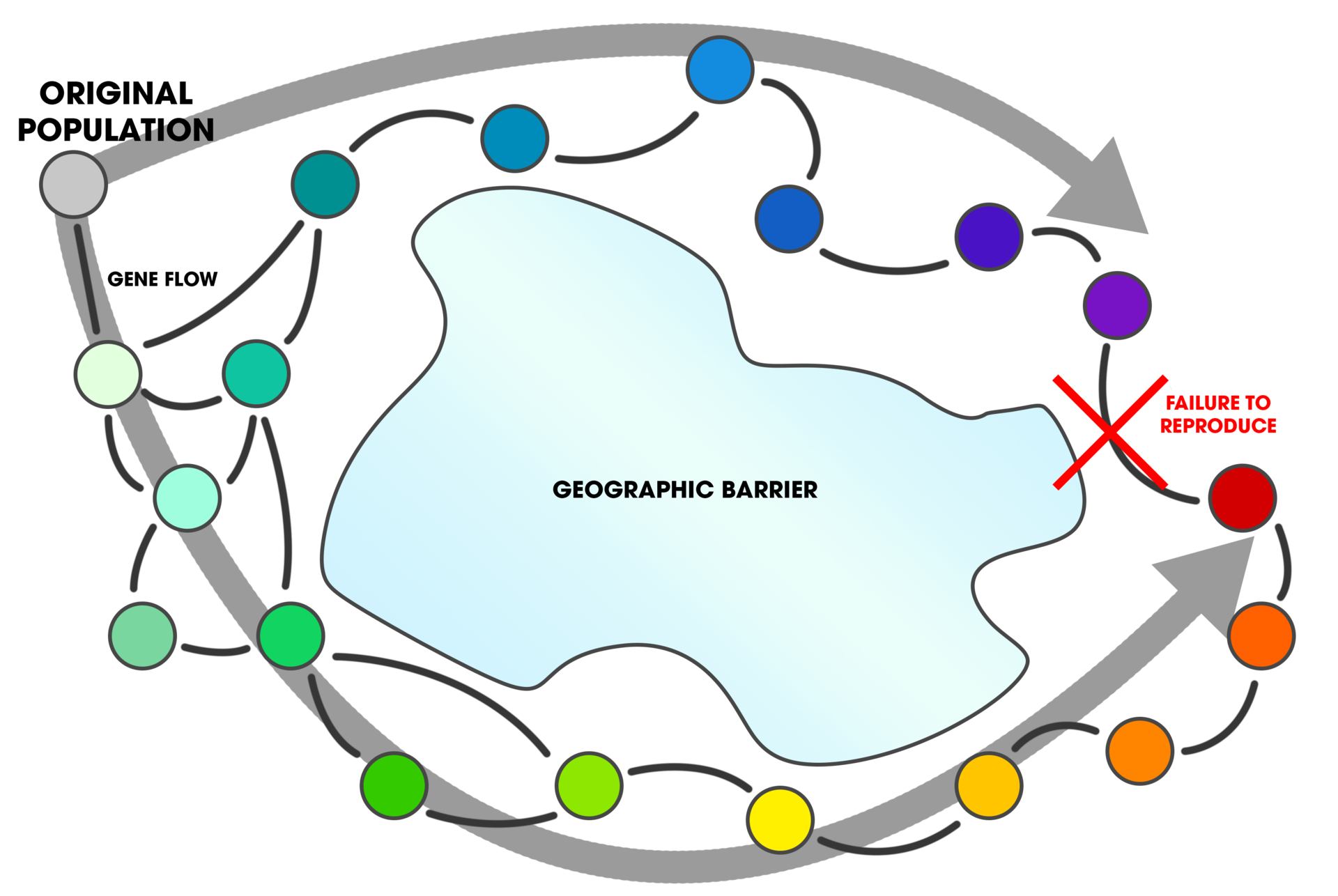On the planet Qualis, about 2 million years ago, their was a species of lizards, called “Quals”. They were about as smart at the common Earth rat, not very smart. They dwelled in the semi-arid regions and tropical rainforests of Qualis, and were the prey of larger, more ferocious lizards like Kols and such. Not very impressive.
Than, they came to Qualis. They were a race of ancient creatures, who were quite skilled at genetic engineering and altering. They stumbled upon a group of Quals, and thought that they might be good specimens for their genetic testing. So, they took a group of 50 Quals, 33 of them female, 17 male. They gave this group of 50 increased strength, and intelligence. Then they left.
Eventually, those group of 50 breed with other Quals, with their increased abilities making it easier for them to survive long enough to breed. Generation after generation, Quals got more intelligent, until eventually the evolved into the intelligent Qualian species. My question is, if 50 members if a species gained intelligence, could they evolve to sapience in 2 million years?

